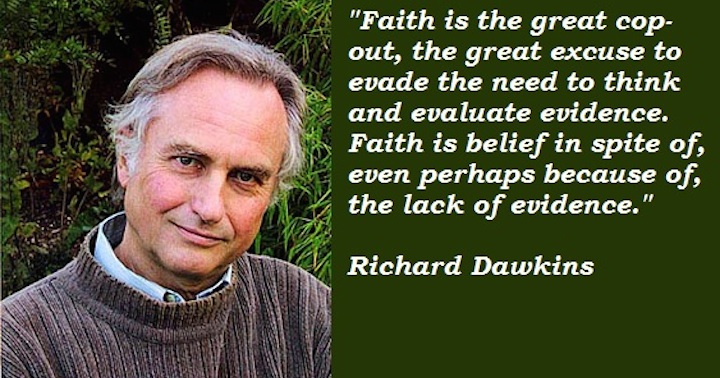Most people don’t really want to live only according to narrowly defined material facts. Most of us try to direct our human primate evolutionary process along ethical non-material lines. We impose standards that do not come from nature. Nature is cruel yet we try not to be. We prosecute people for war crimes that are no more destructive than what happens every day in the churning cauldron of life where everything is eaten and where death is the only incubator of life. We call murder wrong although it’s the most natural thing on earth.
We’ve decided to let an imagined utopian ideal, a future Eden if you will, rule our present despite this being a spiritual non-material-universe-based choice that flies in the face of natural selection. We impose ethics that exist only in our heads upon the material universe. We are part of nature yet we have decided to be nicer than nature. There would be no war crimes trials unless our ethically evolved selves questioned the method of evolution itself. There would be no tears after the death of a friend, unless we had it in us to dream beyond what by now we should be used to.
A spiritual non-material-based way of life turns out to be the actual way we live no matter what we say we believe. We live by ethics not found in nature and we enrich our lives with art. That says something to me. Maybe a purely material view of the universe and of ourselves is not in fact a fact.
We have moments when we say to ourselves, “This is as good as it gets.” When we use the word good it has as much intrinsic meaning to us as the words “two plus two equals four.” Each of us may have a variation on what prompts us to say, “This is as good as it gets, ” but we all know what we mean by the phrase and what others mean.
If there were no spiritual side to us, there would be no sense of loss when the material universe intrudes on our happiness. We’d just accept the evolutionary method. “Death leads to life—so quit complaining!” we’d say.
In theology, transubstantiation is the doctrine that the substance of the bread and the wine used in the sacrament of the Eucharist is changed, not merely as by a sign or a figure, but also in reality. This magical alchemy is no less impossible to explain than the magical alchemy of transubstantiation that’s performed when a scientist describes the gasses exploding to form a billion mile-long column of light as beautiful. This is transubstantiation, too. The physical world is changed into a spiritual fact. Jesus’ words, “Man does not live by bread alone” are given a new depth. Photographs used to gather data become pieces of art. Millions more human primates derive a sense of meaning from the pictures’ beauty than learn scientific facts from them.
The science is debated. Words like dark matter, are tossed around. These words are metaphors for actual things that are what they are without our explanations. When we declare these things beautiful, my hunch is that they were beautiful before we were around to observe them or invented language to express opinions about what we find ourselves looking at.
**This article is an excerpt from Frank’s new book: WHY I AM AN ATHEIST WHO BELIEVES IN GOD How to Create Beauty, Give Love and Find Peace

